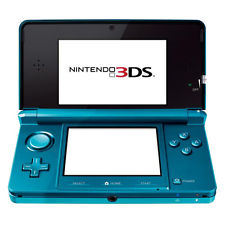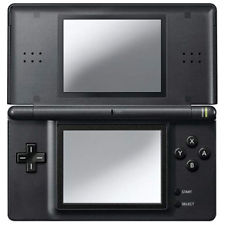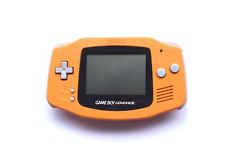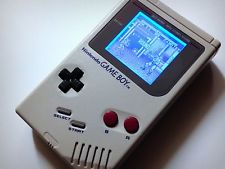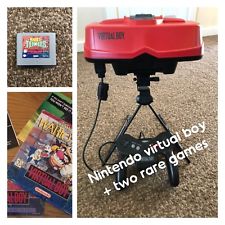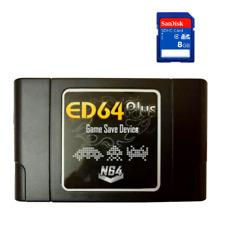|
November 18th, 2006, 14:20 Posted By: wraggster
Via Gamedaily
A Revolution or just a controlled uprising? With the Wii's launch there's an incredible amount of hype for the system, but is Nintendo's new console really going to take the game industry by storm? Not from our perspective. Read on for five reasons why Wii won't rock you...
Before we get started, let's make sure we're clear on what this editorial is not about. We're not arguing that the Wii will be a wash for the Big N; to the contrary, we expect Nintendo to profit greatly from the system. In fact, the Wii will likely buck the trend of Nintendo consoles selling fewer units than their predecessors.
However, what this editorial is about is dispelling the notion that the Wii will mark Nintendo's return to the top of the home console world. Nintendo is trying to reach the great, untapped masses with their system, similar to what they've started to achieve with the DS. However, we believe that the system will ultimately end up in third place in terms of global market share, echoing the sentiment of numerous analysts.
Here are five reasons why we believe the Wii won't rock you:
Not Enough Games
One of the main factors that decided the PSOne/N64 war was Nintendo's lack of software support from third parties (Square famously went over to Sony's camp in the early stages). This past generation, third-party support was better for the GameCube, at least at first. However, that support waned over time, slowing the supply of new titles to a trickle and creating a dearth of GameCube exclusive titles.
For this generation, the Wii has a cautious amount of support from third-parties. While some major publishers (like Ubisoft) are jumping in with both feet forward, providing extensive support and new franchises like Red Steel, many others (like Electronic Arts) are giving a much more measured and calculated response with a handful of offerings from established franchises, such as Madden, Harry Potter and The Sims. Looking over the Wii titles, there's a definite pattern with established franchises and licensed children's titles. With the PS3 eventually getting titles such as Metal Gear Solid 4 and Final Fantasy XIII and Xbox 360 getting heavy hitters like Blue Dragon and Mass Effect, Nintendo needs more third-party star power to compete down the road.
[ "It's not necessarily cool or 'hardcore' to say that graphics matter, but it's still a fact: graphics matter." ]
It's also worth noting that some key franchises are missing from the launch lineup. While the Wii will launch with a new Zelda title (it's amazing what happens when you keep delaying a game from the previous generation), the Wii marks the second straight console release by Nintendo without a new Mario game in the launch lineup. Perhaps more importantly, however, is the lack of Super Smash Bros. Brawl for Holiday 2006. Super Smash Bros. Melee is the best selling GameCube title ever, with over 6 million copies sold worldwide, and SSBM was available for the GameCube's first Christmas. Excite Truck surely isn't a proper substitute for Super Smash Bros. Brawl.
While Nintendo will have a lineup of titles for its virtual console, it is unknown whether this can be a major selling factor for the system. Besides, Sony will have similar offerings for their part and Microsoft already has plenty of Xbox Live Arcade titles. All three systems also feature varying degrees of backwards compatibility, but if anyone has the marked advantage in that are it would be Sony, with the PS3's support of the PSOne and PS2's huge game libraries.
Graphics Really Do Matter
What defines "good graphics" is admittedly subjective and the level of visual quality expected by today's consumer is equally hard to gauge. However, when dealing with the next generation of consoles, a good percentage of consumers will look for something that "wows" them—sorry, Mr. Iwata, but we just haven't had the urge to say "wow." Many consumers want to have a console with graphics that will not only impress them, but also their friends and family. They want their new console to be a centerpiece for their home theater system. When looking for a showcase system like this, consumers aren't likely to pick up the Wii.
Now, Wii games certainly don't look bad; in fact, by current-gen standards they look quite decent. However, when compared to the top 360 and PS3 titles, especially on an HDTV, the Wii is blown out of the water. Games like Gears of War and Heavenly Sword absolutely pop and the Wii just doesn't have the CPU and GPU power to match that.
The Wii's relative lack of power will no doubt turn off some developers. While Nintendo would like to emphasize their motion sensitive controller (and we'll be getting to that in a minute) not all developers are looking to make games with a different input method. Many are going to be looking for more triangle-pushing ability to make their 3D models and environments more detailed and more processing power to make physics effects more realistic.
It's not necessarily cool or "hardcore" to say that graphics matter, but it's still a fact: graphics matter.
And some developers will also be looking to the internal hardware for better audio support (another category in which the PS3 and 360 trump the Wii "soundly"). Some (like Factor 5) have already expressed their disappointment in the Wii for this reason. "When I heard what was going on at Nintendo, I cringed," Factor 5 President Julian Eggebrecht told EGM. "It's audio is relatively mediocre. It's essentially GameCube 1.5."
Wii Remote Not the Best Thing Since Sliced Bread
Easily the most talked about feature of the Wii and perhaps the most talked about feature of any next-gen console is the motion sensitive controller. The Wii Remote (or Wii-mote, if you prefer) and the Nunchaku made waves before anyone outside of Nintendo actually had a chance to touch them. Nintendo's tag team then shook up E3 in a good way, creating huge lines for Nintendo's cordoned off Wii section (the exit of which was incidentally guarded by the scariest looking bouncer this side of Sunset Blvd).
So the Wii has been riding high on a wave of hype, and it's not totally undeserved... but it should be dialed down a bit. Speaking for GameDaily BIZ's experience with the controller, it's not exactly the revolutionary experience Nintendo might like you to think it is. Some titles (like Trauma Center and Red Steel) feel like a natural fit for the controller's set up, because your in game avatar mirrors what you are doing in real life: moving your hands and arms about. Others (such as Monkey Ball) feel as though they could have been done with traditional analog stick controls. Complacent control schemes will no doubt tempt many developers who, instead of using the motion sensing controllers in a unique way, merely port the game over to the Wii and modify the game's control to use motion sensing and call it a day. This is especially true with mutliplatform titles not built specifically for the Wii. You can have the greatest controller setup in the world, but if nobody uses that technology in a creative way, then it's all for naught.
Additionally, sometimes using the motion sensitive controller is awkward to the player and doubly so to observers. Dragon Ball Z: Budokai Tenkachi 2 is a prime example of this, with punching and "Kamehameha wave" motions required to make your character fight. While this may be the thing YouTube 15-minute celebrities are made of, it's hard to imagine it catching on long-term with the prime 18 - 34 male demographic.
While the fundamental design of the Wii's controller is to supposedly simplify modern controllers, the Nunchuck accessory adds a wrinkle: two-handed control. Chewing gum while walking and patting your head while rubbing your belly might vex a lot of people, and so might simultaneous controller motion requirements. The degree of ambidexterity required may make the Wii just as unapproachable to a non-gamer as a PS3 or Xbox 360.
Home Console Market Isn't Nintendo's To Lose
When Nintendo announced the DS, many perceived it as a big risk. While it was certainly a departure for the company, Nintendo was so overwhelmingly dominant in the portable market that that odds were in its favor from the start. Indeed, the system received good third-party support and the DS has been embraced by millions of fans around the world.
Now, the Wii is releasing, but instead of following the phenomenally successful Game Boy Advance, it has to follow the GameCube. While Nintendo's current-gen system certainly has its fans, it was probably Nintendo's least successful home console in a fiscal sense to date. The GCN sold fewer units than the Xbox (with practically zero market penetration for the Xbox in Japan) and the system took a distant third place to the PS2 with less than 15 percent market share.
The point is that established support really does carry weight in console wars, and portable system success does not ensure home console sales. Despite Nintendo's attempt to drum up interest from traditional "non-gamers" the fact remains that the people most interested in the next-gen consoles are current-gen gamers. And with a survey showing loyalty among the mass of PS2 owners significantly higher than the Xbox or GCN, it may prove difficult to cut into the established mind share.
Price Advantage Won't Last
The Wii will be the cheapest of the three next-gen consoles on the market this holiday. It's perhaps $50 more expensive than most people hoped for, but $250 still has an edge over $299/$399 for the 360 and $499/$599 for the PS3. Console prices, however, never stay static for long in a competitive marketplace.
Microsoft is probably already prepared to usher in a price drop for its system; the cost of the PS3 probably made them decide to wait in dropping the price. And while the PS3 is expensive right now, Sony is working very hard to streamline manufacturing and bring the cost of components down so that they can eventually slash the price tag as well. It's the nature of electronics to decrease in cost as economies of scale and abundance take effect.
With the Wii, there's less distance for the price to fall. While tactics like removing the bundled game might help the cost come down in a more precipitous fashion, hundred dollar price drops (which are likely with the PS3 the next two holiday seasons) aren't going to happen. The simple fact remains that the price difference between the Wii and the 360/PS3 will shrink over time, unless Nintendo is willing to continue cutting the price of the system when it reaches $100. And will consumers really balk at the difference between a $99 Wii and a $199 or $249 PS3?
Final Thoughts
When a new console comes out, it's very easy to get caught up in the hype. We feel that Nintendo has done a great job in perking up the ears of many Nintendo fans and general hardcore gamers. However, even though the Wii may have energized Nintendo's fan base like no system that's come out since the SNES, GameDaily BIZ does not foresee this excitement being replicated in the mainstream, at least not over the long term.
Nintendo fans should take heart, though. While unlikely to light the whole world on fire, the Wii's success will likely keep Nintendo making home consoles for now and into the forseeable future. And perhaps most importantly, have fun with your Wii if you manage to get one during this hectic launch; if it does that much for you, then you've already come out ahead.
For more information and downloads, click here!
 There are 14 comments - Join In and Discuss Here There are 14 comments - Join In and Discuss Here
|
|
 NES
NES





